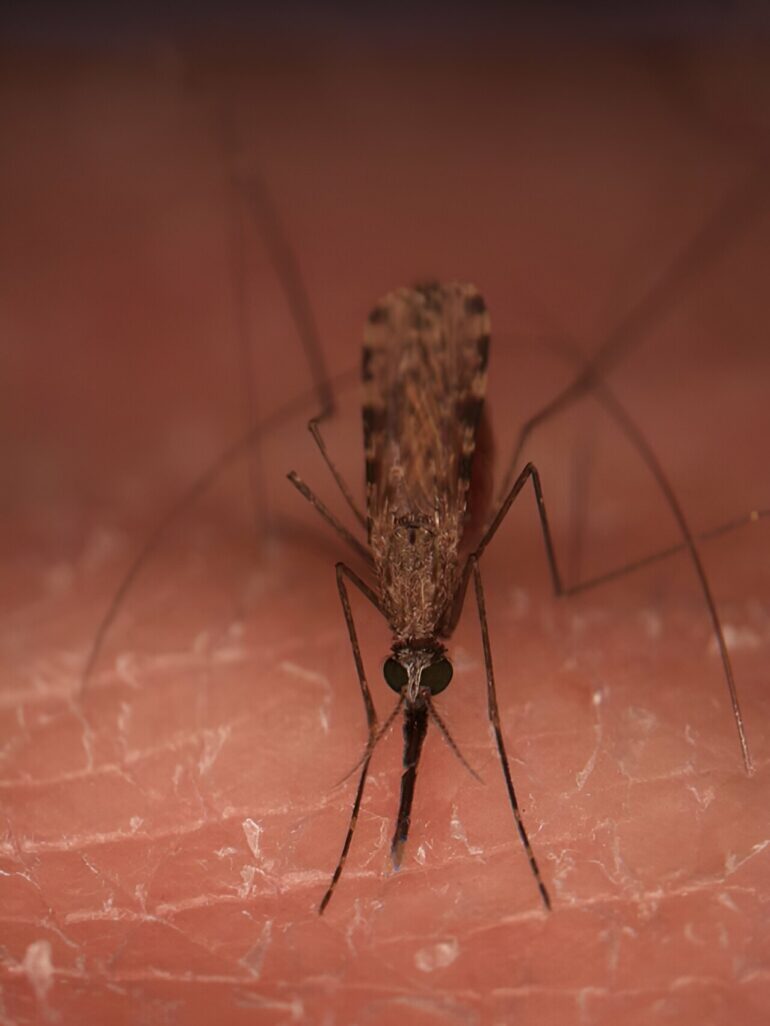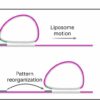Mosquitoes tread a thinning line in warming climates, where aging accelerates and infections intensify. New research shows that warming and aging act as a one-two punch, lowering mosquito lifespans and fanning the flames of bacterial infections. These findings highlight how climate change could alter the risks of disease spread by mosquitoes.
The new study, “Warmer environmental temperature accelerates aging in mosquitoes, decreasing longevity and worsening infection outcomes,” was published in the journal Immunity & Ageing in September 2024. The team, led by graduate student Jordyn Barr, used three temperature treatments, four immune response conditions, and conducted experiments with mosquitoes at four different ages. The rest of the team consisted of Professor of Biological Sciences and Barr’s advisor, Julián Hillyer, Barr’s lab mate Lindsay Martin, and Associate Professor of Biological Sciences Ann Tate.
The first results reported are no surprise: Mosquitoes that are infected with bacteria survive less than those that are not, and mosquitoes that are older survive less than those that are younger. A result that is captivating is that mosquitoes in warmer conditions survived less than those in cooler conditions. The paper notes that starting at 27°C, a mosquito’s risk of dying increases a startling 40% for every degree warmer.
According to Hillyer, “That warmer temperature increases mortality was not surprising, but the magnitude of the increase certainly was.”
“In the lab setting, we had initially tried to measure survival at 33°C,” Barr continued. “At this warmer temperature, mosquitoes had difficulty surviving past 10 or 11 days of age. Even at 32°C, it was challenging to have a sufficiently large population of mosquitoes survive to 15 days into adulthood.”
A previous study from the Hillyer lab found that rising temperatures accelerate aging in mosquitoes, which weakens their immune system. The work showed that mosquitoes reared at higher temperatures aged more quickly, resulting in a compromised immune response.
But this early study did not scrutinize whether weakened immunity translated into worse survival or infection outcomes. Therefore, the new study goes further by measuring the combined effects of infection, aging, and warming on survival and the intensity of an infection.
The results show that each of the categories measured negatively affect mosquito longevity and many effects are compounded. While infection always lowered a mosquito’s likelihood of survival, an infection in warmer conditions was more detrimental than an infection in cooler conditions. The same is true for aging. Older mosquitoes survived less than younger mosquitoes when infected.
But importantly, unlike what happens for humans and other mammals that use metabolism to regulate their body temperature, changes in temperature greatly modified how fast mosquitoes aged. As a consequence, warmer temperature accelerated aging-related mortality and amplified the aging-dependent increase in the strength of an infection.
Hillyer, who highlighted the crucial role of the environment for insects, said that the paper shows that warmer temperatures and aging together increase mosquito mortality and infection intensity, with each factor amplifying the impact of the other. This finding underscores how a warming world could shape the roles of insects as pollinators, pests, and disease carriers.
More information:
Jordyn S. Barr et al, Warmer environmental temperature accelerates aging in mosquitoes, decreasing longevity and worsening infection outcomes, Immunity & Ageing (2024). DOI: 10.1186/s12979-024-00465-w
Provided by
Vanderbilt University
Citation:
Warming climates quicken aging-related mortality in mosquitoes, study finds (2024, September 27)



